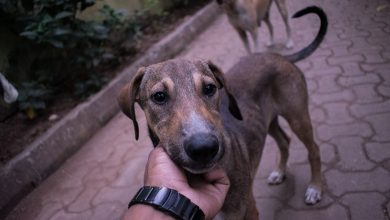

How de La Salle Brothers was founded:
John Baptist de La Salle was born into a world very different from our own. He was the first son of wealthy parents living in France over 300 years ago. He completed his theological studies and was ordained a priest on April 9, 1678. Two years later he received a doctorate in theology. Meanwhile he became tentatively involved with a group of rough and barely literate young men in order to establish schools for poor boys.
To be more effective, he abandoned his family home, moved in with the teachers and so formed the community that became known as the Brothers of the Christian Schools.
Brother Vincent Corkery, who comes from Ireland, has served in Malaysia since 1948 or a span of more than 60 years. Several years ago, he applied for Malaysian citizenship after having obtained the necessary pass in written and oral Malay, but his application was rejected without explanation.


As with other Brothers who taught in Malaysia, the financial remuneration provided to him has been barely adequate. His last drawn monthly salary as Principal was RM1000, and when he retired in 1988, he did not qualify for a pension or for other retirement benefits. Since retirement, the La Sallian communal fund has provided him RM1000 a month for his food and car maintenance.
In retirement, he heads a centre for programmes for student leadership and for staff groups at La Salle Centre in Ipoh, and serves as secretary for the Brothers Councils for Malaysia, Singapore and Hong Kong.
The La Salle Brothers made their first appearance in Asia in 1852 when they founded St Xavier’s Institution in Penang. Since then a network of Lasallian schools has developed throughout the country. When the British left Malaya, the Lasallian Brothers stayed on to manage their schools.
During the Japanese army occupation of the country all the foreign brothers were imprisoned. My old teacher, Brother Lawrence Spitzig, a Canadian was imprisoned in Changi, Singapore. Brother Lawrence retired as principal of my alma mater, St John Institution and died last year on August 18 in Assunta Hospital, Petaling Jaya at the age of 92 after long service to the nation.
These Catholic schools have continued to flourish even when the Brothers have greatly diminished in number. The foundations were well laid, and Lasallian education continues to be an important part of our education system even in these changing times.
Several of our important leaders of the nation, including our Prime Minister Abdul Najib Razak, Hishammuddin Hussein, the Sultan of Selangor, the Sultan of Perak Raja Nazrin and many others have had their education in my alma mater St John’s Institution, Kuala Lumpur.
In terms of their service and loyalty to the country and the various communities, the Brothers hold a torch that is second to none.
Their dedication and commitment to the country was perhaps most evident during the Japanese Occupation period. Despite the warnings of many friends that they would be perceived as enemy aliens by the Japanese and of the dire consequences following, the Brothers opted to stay with the people. They paid a horrific price for this loyalty.
The consequences included incarceration in Changi prison where 15 Brothers were held; Taiping and Pudu jails where 12 were held; and at Bahau, in Negri Sembilan, where some 30 were held under primitive conditions in a mosquito-infested jungle settlement, surviving only on the food they managed to grow.
Once the Japanese surrendered, in spite of what they had endured, the Brothers returned to their posts and reopened their schools without delay. The fact that they had not run away but had chosen to stay with the people and share their pain, greatly enhanced their standing in the post-war years but this seems to count for little today.
I urge the authorities to do the right thing for all other LaSallian and missionary educators who have sacrificed so much for our country. Provision of a gratuity and a pension, automatic approval of citizenship, appropriate medical and other civil service benefits – surely the country can afford this minimal humanitarian assistance.
Koon Yew Yin


